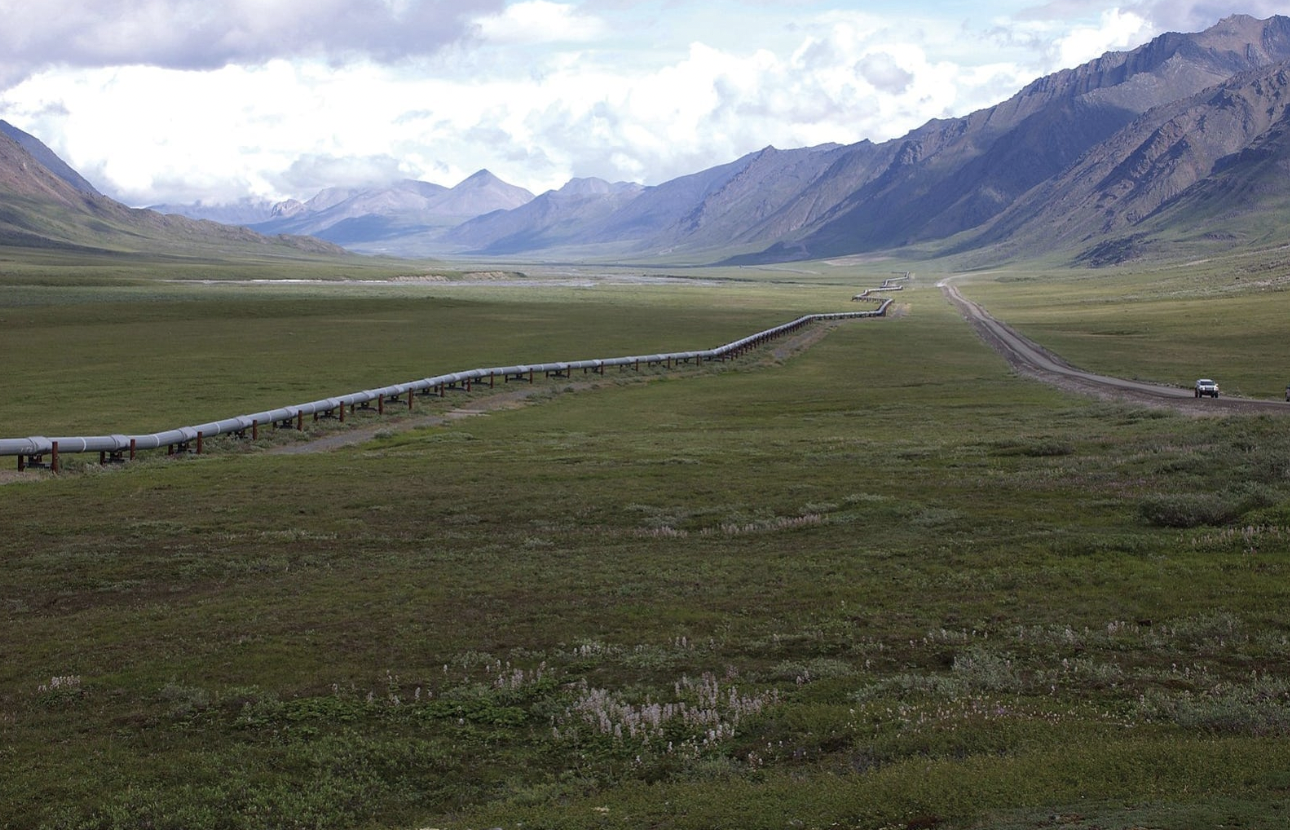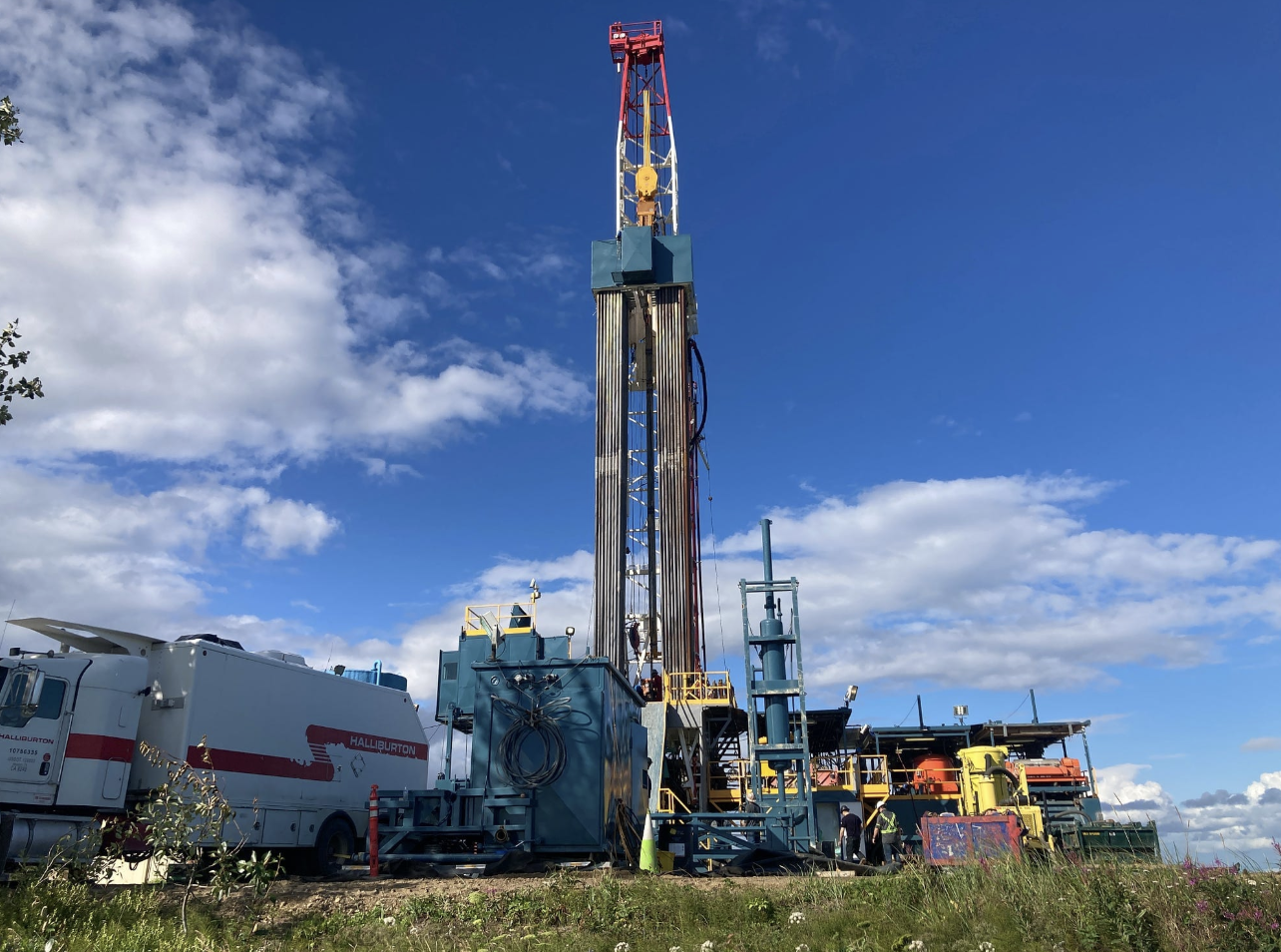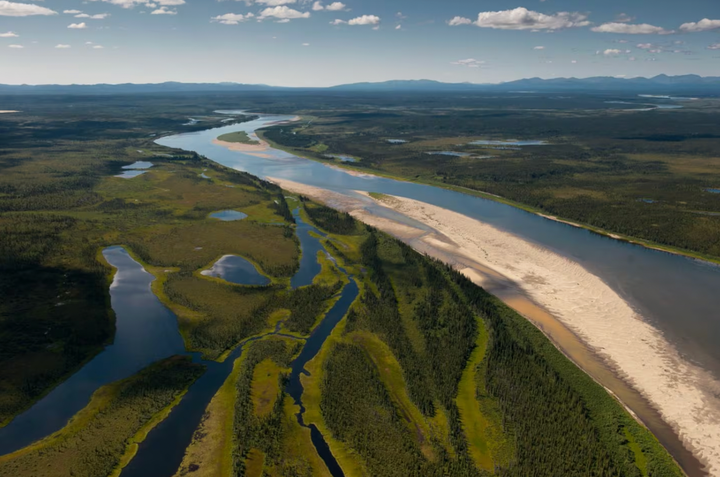Northern Journal news and a side of Interesting Stuff
The podcast is back! And other news.

Greetings from the Northern Journal publisher’s desk — it’s been a little while since you’ve heard from me, at least in the first person, and I’m excited to share some updates about the biz.
I’ve also got a few news items below, including: a fossil fuel evangelist as a featured speaker at the governor’s yearly sustainable energy conference, a failed pitch to buy into Alaska’s LNG export project and a new gas field purchased by Hilcorp.
But, back to the Northern Journal news. First and foremost: The podcast is back! Season 2 kicks off with an episode on the Alaska LNG project, which has been the subject of many headlines recently but not much detailed, explanatory reporting. A veteran LNG analyst, Richard Pratt, joined me for a deep dive on the project’s prospects.
I have some other ideas and plans for guests and topics for Season 2 of the podcast. But I’m also really keen on hearing yours. Please send along any suggestions — you can respond to this email. Or you can text me: My cell is at the bottom of this page.
Meanwhile: My reporting and other work related to access to commercial fishing careers continues. Expect a second story soon in my written series, funded by the Pulitzer Center, which began in February with this piece about the last skipper in the Kodiak village of Ouzinkie. I also recently hosted a public panel discussion on the subject, which KTOO, the Juneau public media outlet, generously agreed to co-organize and host.
If you have thoughts or feedback on this work, or questions about where it’s going, please drop me a line. My reporting on commercial fishing and the seafood industry more broadly has taken a backseat to this focused project for the past several months, but I expect it to resume in the coming months as the project wraps up.
Mining correspondent Max Graham has been doing invaluable work over these past few months, as well, and we’ve got a couple of big pieces from him in the works. Stay tuned.
As always, I encourage you to drop me a line if you have story ideas or suggestions. One area that I’m keen to dig further into as we get through the summer and into the fall is the military, and Alaska’s geopolitical position as our country increasingly focuses its foreign policy on China and Asia more broadly. If this is an area you work in or think about, I’d love to talk. Other things I’m thinking about, and curious to hear your thoughts on: gridlock in Juneau, and what we want Alaska to look like in five years, 10 years, 20 years and 50 years.
One more quick reminder: Northern Journal depends on readers like you to pay our bills — I wouldn’t be here without your support. Voluntary memberships make up the majority of Northern Journal’s revenue, so if you can afford one, I’d really appreciate you signing up.
We also have ad space you can buy.
With that, a few short news dispatches follow. I’ll be back soon.
Fossil fuel evangelist headlines Dunleavy’s “Alaska Sustainable Energy Conference”
At his third annual sustainable energy conference last year, Alaska Republican Gov. Mike Dunleavy featured a relatively straight-laced group of scientific experts and Biden administration officials.
At this year’s conference in June, with President Donald Trump promoting American “energy dominance” and trying to boost oil production, the conference’s agenda has taken a sharp righthand turn: One of the “featured speakers” at the June event is Alex Epstein, a fossil fuel evangelist from California and author of a 2022 book titled “Fossil Future: Why Global Human Flourishing Requires More Oil, Coal, and Natural Gas — Not Less.”
Epstein’s website lists a standard $37,000 fee to speak at an in-person event. He did not respond to a request for comment Wednesday; a Dunleavy spokesman, Grant Robinson, said that the conference’s speaker agreements “are not public information.”
If there’s a fee, Robinson said, it would be negotiated between the speaker and the contractor that’s helping to organize the energy conference, and it would be “paid with conference sponsorships and ticket revenue.”
Epstein, a self-described “philosopher and energy expert,” has testified multiple times before U.S. Congress and asserts that policies to reduce fossil fuel use among developing countries are “immoral.” His arguments and talking points on behalf of expanded fossil fuel consumption have made him a favorite speaker for some conservative elected officials and their ideological allies.
Also joining Epstein as a featured speaker is Daniel Turner, whose national group, Power the Future, has aggressively promoted expanded extraction of Alaska's coal, oil and natural gas and says “renewables are not the answer.” Turner describes his work as fighting “to protect American energy workers from the eco-Left” and from “Hollywood phonies.”
In a press release Tuesday, Dunleavy's office said the conference would explore the future of energy in Alaska and on a global scale. Its focus will include artificial intelligence and the electricity needed to power data centers, advancements in renewable and nuclear power and the "continued responsible development of Alaska oil, gas, and mineral resources," the release said.
McKinley wanted in on Alaska LNG export project
Anchorage financial firm McKinley Alaska Private Investment made an effort to take over the Alaska LNG export project — a bid that the state agency leading the development ultimately “tossed aside,” said McKinley’s chief executive, Rob Gillam, in favor of another company.
Gillam wrote to the board members of the state-owned Alaska Gasline Development Corp., or AGDC, in early March. His message said he was seeking an opportunity “to share my firm’s fully funded offer” to acquire a majority of the AGDC subsidiary holding the $44 billion LNG project’s assets, according to a copy of his message obtained by Northern Journal.
In his message, Gillam said that his company spent the past year conducting research on a “potential bid” for the project before being instructed by AGDC in December to “stand down and do no further work on our nearly finished proposal.”
Up until that point, Gillam said, “we were not told of any impending deadline or given any heads-up that the significant time and financial resources my firm was spending in due diligence would be tossed aside and our proposal not even considered by AGDC.”
AGDC subsequently announced that it had reached an agreement with another company, Glenfarne, to take over the project’s development.
A spokesperson for McKinley, Stacia Gillam, declined to comment. A spokesman for AGDC said that the agency had responded to Rob Gillam but declined to share a copy of its message.
“AGDC closely examined all documented and written proposals that we received,” said the AGDC spokesman, Tim Fitzpatrick. “Once Glenfarne stepped forward, interest in the project greatly accelerated. A project of Alaska LNG’s size will have ample opportunity for investors to get involved.”
McKinley is one of Alaska’s few homegrown finance firms. It manages a chunk of the Alaska Permanent Fund’s portfolio, though one of its biggest investments as part of that initiative, in processing company Peter Pan Seafood, ended catastrophically, with plants sold and shuttered.
Hilcorp already owns most Cook Inlet oil and gas. It just bought out another player.
Hilcorp has bought out one of the last small independent operators in the Cook Inlet basin outside of Anchorage — furthering consolidation among the companies that supply urban Alaska with the fuel needed for home heating and electricity generation.
Subsidiaries of Gardes Holdings, a Louisiana-based oil business, had operated the North Fork unit on the Kenai Peninsula — a small development that produces some 2 million cubic feet of gas a day, or a little more than 1% of the demand of Enstar, urban Alaska’s fuel supplier.

Gardes had said it was struggling to raise money to drill new wells, and its subsidiary, Vision Resources, sold its leases to Hilcorp in a transaction approved last week, according to documents posted by the Alaska Division of Oil and Gas. Hilcorp affiliates have also acquired a 7-mile pipeline associated with the North Fork unit.
A Gardes official, Mark Landt, referred questions to Hilcorp.
In a prepared statement, Hilcorp spokesman Matt Shuckerow said the company is looking to drill new wells as soon as this winter.
“Hilcorp is excited about the opportunity to further develop the North Fork Unit — a field that is largely undeveloped but shows potential for new production," Shuckerow said. "Hilcorp is optimistic about bringing additional natural gas to market to help meet the energy needs of Southcentral Alaska families, homes, and businesses."
Anchorage utility’s cooperative solar project is almost full
Anchorage’s cooperatively owned electric utility, Chugach Electric Association, is preparing to launch its community solar project — a development in which utility members can subscribe to receive solar power from a small share of its production.
The half-megawatt solar project, a half-mile south of the Dimond Center mall, allows Chugach members to buy a subscription to use power from as many as 20 of the development's 1,560 panels.
With enrollment open through May 15, members have signed up to reserve more than 90% of the project’s panels, said Julie Hasquet, a spokesperson for the utility. If the project ends up oversubscribed, the utility will hold a lottery to determine which members are able to participate, she said.
The project is expected to start producing power this summer.
An eye on Peltola
Amid what’s expected to be a jam-packed campaign for Alaska’s governorship next year, a colleague of Democratic former U.S. Rep. Mary Peltola recently appeared to confirm rumors that she could enter the race.
“No Alaskan really wants to be in D.C.,” Anton McParland, Peltola’s colleague at law firm Holland & Hart and her former congressional chief of staff, told the New York Times.
The Times story referenced Peltola as a "top potential Democratic recruit" to run for the U.S. Senate seat currently held by Republican Dan Sullivan.
But the story said Peltola "might instead run for governor or even seek to return to the House" — though it quoted McParland as saying she was probably "months" from a decision.
This post has been updated to add a statement from Hilcorp.



